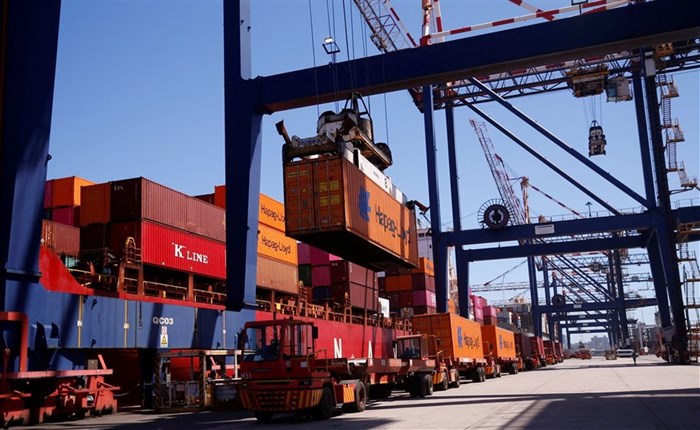South African fashion retailers are ramping up local production and using alternative sea ports and air freight to mitigate the impact of congestion at traditional ports that has caused massive delays in stock deliveries, executives told Reuters.

Source: Reuters
State-owned logistics company Transnet said in November the backlogs at the Port of Durban and congestion at Richards Bay were due to factors including under-investment in equipment and maintenance, warning that procuring some of the new equipment could take as long as 12 to 18 months.
Although South African fashion retailers have been moving production closer to home, they still rely heavily on imports, especially from Asia, for some products.
TFG, the owner of Foschini clothing brand, has fared better than competitors after it expanded its local factories and bought new ones over the last seven years.
As a result, TFG had enough stock for the key December festive season, it told Reuters.
The company added that it did not expect any major disruptions to ranges for the upcoming southern hemisphere autumn and winter months and that it was taking the necessary action, such as ordering earlier and amending destination ports.
South Africa's autumn season starts in March.
Woolworths and Truworths are also ramping up local clothing production, using local suppliers and placing orders earlier, executives told Reuters.
Woolworths is placing smaller orders, more frequently, to avoid having big shipments stuck at the harbour, CEO Roy Bagattini said.
It is also directing ships to ports with fewer backlogs, such as Walvis Bay in Namibia, and then trucking the products to Cape Town, Bagattini added.
"Sometimes we look to air freight depending on the product and category. We fly stuff in, obviously it is costly and is not sustainable," he said, adding Woolworths would not rely on this heavily to avoid higher expenses.
For the autumn and winter seasons, Woolworths is in a much better shape in terms of stock but not at 100% levels yet, Bagattini said, while Truworths cautioned there may be some stock shortages in autumn.
Truworths said its mitigation strategy also included sourcing from different countries.
It's not just fashion retailers grappling with the problem. South African food services firm Bid Corporation said last week it was holding buffer stocks to mitigate the impact.


































